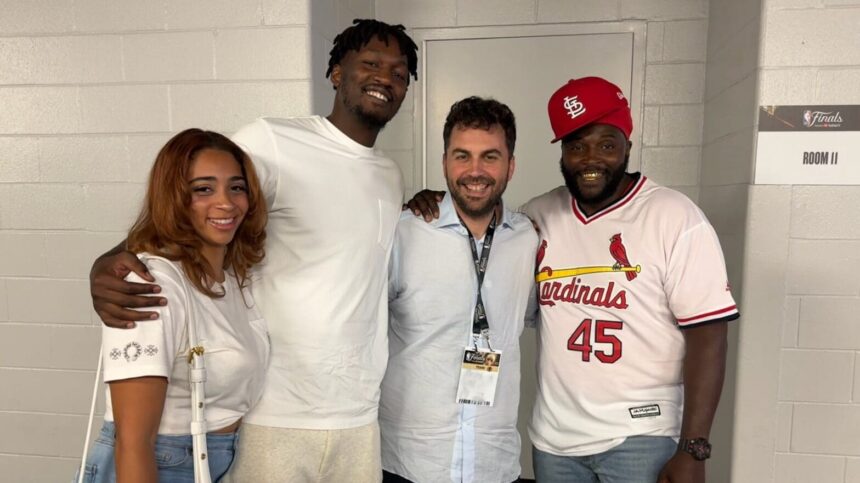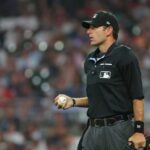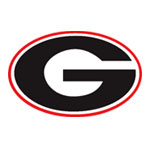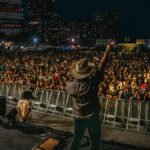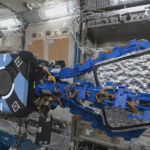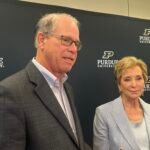Mark Cuban’s chief of staff, Jason Lutin (2nd from right), played a vital role in working to reunite father and son.
DALLAS — Silly, it seemed in the moment. But Dorian Finney-Smith quietly confided in a drab empty chair, spilling his soul to this pretend father he hadn’t physically touched since childhood.
“I miss you,” he’d say.
I wish you could come meet your granddaughter.
My brother would still be here if he had a male figure in the house.
Leading the University of Florida hoops program during Finney-Smith’s time there, Chicago Bulls coach Billy Donovan conducted this empty chair exercise, borne from sitting in counseling sessions he’d recommended after learning why his young wing seemed so quiet and withdrawn socially.
That period in Finney-Smith’s life laid the groundwork for a celebration nearly three decades in the making.
The Brooklyn Nets forward plans to soak in Father’s Day finally face to face with dad, Elbert Smith, on Sunday in Dallas for the first time in more than 28 years.
“I just want to sit around and take in the moment,” said Finney-Smith’s father, Elbert, otherwise known as Big L. “I just want to play with the grandkids and be like, ‘Wow, I’m here.’ I’ve only anticipated this for the past 28 years, right?”
In the 28 years and nine months Elbert ‘Big L’ Smith spent behind bars convicted of second-degree murder and malicious wounding, Dorian at 15 witnessed the murder of older brother Ra-Shawn, a high school football standout, shot seven times at a party after playing the best game of his career.
Dorian fathered a daughter (Sinai) at age 16, and later sons Dorian Jr. and Aysen. He found love. He earned a college degree. He achieved a lifelong dream of making it into the NBA, earning generational wealth off hoops skills passed from his mother, Desiree Finney-Henderson, and amplified by steel physicality and tenacity inherited from Big L.
Nicknamed “Doe-Doe” after Big L’s mother, Doris Smith, Finney-Smith views life and his early relationship with his father like a crime drama that became normalized for Desiree and his five siblings growing up in Portsmouth, Va. with Big L languishing in prison.
“I was so young that’s all I knew,” he said. “What people look at on the movies, I was going through that sh– in real life. Fist-bumping through glass.”
But all this sets up for a happy ending. Brightened by brilliant performances from a cast of NBA luminaries coming together over the years in ways, big and small, to secure Big L’s freedom.
It was coach Donovan, who first encouraged Finney-Smith to reconnect with his father, helping him secure a flight home to Virginia for the reunion.
“God answered my prayers,” Big L said. “You’re sitting in there for the longest. You want to reach out and talk to your kids. When he reached out to me, the only thing I did at first was just listen. He needed an ear.”
An assistant with the Dallas Mavericks from 2014 to 2021, Orlando Magic coach Jamahl Mosley provided that, too. Touched by Doe’s story, he badgered him into approaching minority owner and head of Mavs’ basketball operations Mark Cuban to ask for assistance with Big L’s plight.
Cuban’s chief of staff, Jason Lutin, a law school graduate and Florida alumnus like Finney-Smith, also played a major role. He pored over a mountain of legal documents pertaining to Big L’s case and sprang into action.
“I was so happy we were able to help Doe’s dad,” Cuban said. “It’s something we had talked about for years and Jason was the exact right person to help.”
Indiana Pacers coach Rick Carlisle, formerly of the Mavs, and Dallas general manager Nico Harrison also served in transforming tragedy into triumph.
“It was all about Doe,” Harrison said before Game 4 of the NBA Finals. “Beautiful human being, amazing personality, one of our best players. Anything we could do to support him, we were gonna do. That’s with all our players, but especially Doe. He’s the type that everyone he comes across would bend over backwards for him. That’s testament to who Doe is.”
‘This world is rough’
Elbert Smith served in the Navy and was stationed in Norfolk, Va., where he met Desiree. He received an honorable discharge in the early 1990s.
Desiree would give birth to Dorian in May of 1993 and his sister, Monnazjea, two years later.
In the days leading into the moment that would change his life forever, Big L remembers fostering “million-dollar dreams” like many 23-year-olds supporting young families.
Doe, 31, is the youngest son of Desiree and Big L, who are no longer together.
“At the time, my dreams were just to raise my kids, work hard and be the best person I could be in my kids’ eyes,” Big L said. “I just wanted to be rich in my kids’ love. This world is rough. You need somebody to shield you and guide you through this crazy world. For us to have strong black and brown children, they’ve got to have a strong support system.”
Doe and his siblings lost that almost instantly.
Carrying pistols, Big L and Diefen McGann walked into an auto repair garage in Kempsville, Va. (a borough of Virginia Beach) on Jan. 25, 1995, to collect a debt from Willie Anderson II and a dispute ensued, according to reports and court records. Anderson tried to take McGann’s gun during the skirmish. Big L charged at Anderson with a knife, causing him to unhand McGann’s gun.
McGann admitted he then fired three shots at Anderson, who staggered outside near the garage and collapsed into a ditch, where he was later found dead.
Police arrested Big L and McGann more than two weeks later, charging them with first-degree murder.
McGann would take a plea deal for voluntary manslaughter and a five-year prison sentence. Since Big L didn’t fire the fatal shots, he rejected the same deal on advice from a court-appointed attorney and opted for trial.
A jury convicted Big L on March 29, 1996, and sentenced him to 44 years in prison.
A year earlier, the state of Virginia abolished discretionary parole for felony offenders starting on Jan. 1, 1995, requiring them to serve at least 85% of their sentences.
The Virginia Supreme Court later ruled in 2000 that jurors were required to be informed of the state’s no-parole statute. In the five years between the abolition of discretionary parole and 2000, jurors handed down long sentences believing offenders could eventually earn early parole. The state’s general assembly later adopted legislation that would light Big L’s path to freedom by opening a loophole for parole consideration for prisoners convicted between 1995 and 2000.
‘I feel the need to try to fix it’
Doe Doe was a little more than a month from his third birthday when Big L was sent away.
“Visiting him early on, I was able to touch him,” he said. “When I was four or five, up to around eight. After that, it was always talking through the phone through the glass.”
Big L takes responsibility for the change in visitation rules. He wasn’t a model citizen. Youth and rebellion with hopelessness stirred in formed a toxic mix coursing through every fiber of his being. Big L spent time in solitary confinement and supermax prisons before he was eventually released in December from Greenville Correctional Center.
“I went in there without a possibility of parole,” he said. “So, really it wasn’t no reason to follow the rules or be a respectful inmate. I did like 10 years straight in segregation. Then, I got out, got into it with [a guard] and went back behind the wall again for another seven years straight.”
The 2008 murder of Ra-Shawn, Doe’s older brother, changed everything. Already quiet with a fire burning inside, Doe admits he shut down emotionally while holding outsiders at arm’s length with a sullen nonchalance, essentially hiding pain in plain sight.
“I wasn’t the same person anymore,” he said.
For Big L, the tragedy softened him, snatching away aggression pent up inside the admitted gang member. By then, he’d served nearly 12 ½ years of his sentence.
“As a gang banger, you’re used to acting out. I couldn’t act out, ” he said. “I was angry, but who can I be angry at? Nobody but myself because I wasn’t there for them.
“Now that I have grandchildren, I want to be the best in their eyes. My plan is to heal and help as many people as I possibly can while I’m here. I’m gonna be honest with you: I (expletive) up when I was out there. So, I feel the need to try to fix it.”
‘Those were bonding moments to me through a TV’
The first time Big L watched Doe Doe play on television was Nov. 25, 2011, when Virginia Tech faced Oklahoma State in his lone season as a Hokie before transferring to Florida.
Big L beamed inside, but he never once told anyone in prison that Finney-Smith was his son. When he received the rare treat of checking out Doe Doe in his element, Big L would quietly stare at the screen, studying body language, noticing his baby boy was turning into a man growing facial hair.
“Those were like bonding moments to me through a TV,” Big L said. “For those two hours they were playing, it was just me and him. It was humbling because very few people get that opportunity to sit in their cell locked in segregation and get to see your son playing on TV.”
As fellow inmates argued over players and teams in the background, Big L kept his son’s identity secret. He operated that way from that first game until his release.
Occasionally, some inmates would figure it out. After spending so much time behind bars, people Big L grew up with and went to high school were now getting locked up with him.
“They’re like, ‘Yo, you Doe Doe’s dad?’ I was in pods with dudes like three and four years. Then, I’d leave and move to another building. They’ll come up to me with this aggression like, ‘Yo, why didn’t you tell me your son plays in the league? We lived together every day, and you never told me,” Big L said.
It’s just something I never did. Don’t get me wrong, I was proud though.”
Moments like these 🖤 https://t.co/i7Obh9AruT pic.twitter.com/uZC2OFmnAf
— Brooklyn Nets (@BrooklynNets) April 7, 2024
‘What conversation is tough?’
Over that period, Doe Doe and Big L drew closer. In part because of Finney-Smith’s counseling sessions at Florida, which ultimately led to Donovan urging him to re-establish the relationship with his father.
Doe also longed for the familial bond he often saw from watching fiancé, JazMyne Branch with her family.
“I just saw how connected their family was,” Finney-Smith said. “She’s got her mom and dad. I just wanted my sons to meet my dad. I come from an area where a lot of Black boys don’t have their pops.”
Most of the communication between Doe and Big L took place over the phone, and they filled the gaps with letters, which supplemented what they forgot to say on the calls. Eventually, the prison started letting inmates use iPads and they could email.
Big L would often return to his cell after a conversation with Doe, and reflect on what he should have shared if they weren’t limited by time.
“In a 20-minute phone call, you’re trying to jam a whole life story into those 20 minutes,” Big L said.
Doe hates being rushed. So does Big L. Both are laidback, almost to a fault. Both move slowly when it’s time to chill. Still, plenty of questions arise frequently from both men. Some of the conversations ooze with emotion.
“We’ve been through so much as a family that ain’t no conversation too difficult for us,” he said. “We’re transparent. We’re honest with each other. I had a baby early. I saw my brother get killed. What conversation is tough?”
How the Mavs became committed

Former Mavs coach coach Rick Carlisle (left) is 1 of many who helped Finney-Smith transform his family’s tragedy into triumph.
Entering the league with Dallas as an undrafted free agent in 2016, Finney-Smith forged tight relationships with Luka Doncic and Dennis Smith Jr., now his Nets teammate, as well as Mosley.
One day, Mosley overheard Finney-Smith receiving bad news after an unsuccessful parole meeting for Big L.
“Mose was like, ‘Man, you should holler at Cuban and see what he can do,’” Finney-Smith said. “He said, ‘You just never know.’”
Doe was reluctant, still early in his NBA career on a non-guaranteed contract. Even after signing a three-year deal in 2019, Finney-Smith refrained from taking Mosley’s advice, unsure Dallas wanted to keep him around long term.
“Then, when I signed for $55 million (in 2022), that’s when I thought, ‘O.K., they really [like] me,’” he said. “Mose just kept checking in and asking, ‘Did you say something yet?’”
Finney-Smith finally approached Cuban, who ultimately pledged the organization’s support while telling him to also speak with Lutin, his chief of staff. He worked tirelessly for months studying Big L’s case.
“Jason was working hard like it was his daddy,” Finney-Smith said.
Eventually, they recruited Jerry Kilgore, the former attorney general of Virginia. Kilgore decided to take Big L’s case pro bono after the two met.
Big L’s parole hearing in Virginia came up in January of 2023. Finney-Smith attended with Lutin and Harrison, who traveled with the forward and participated in the proceedings as Kilgore brought in written character testimonials on Doe from various Mavs officials, including Cuban and CEO Cynt Marshall.
Kilgore also needed to explain to the parole board how Finney-Smith and his family could provide a stable home, financial support and employment after Big L’s release. He’d live in a home purchased by Finney-Smith in Chesapeake, Va. with Desiree and a cousin, and work for the family’s foundation.
Carlisle also chimed in virtually, Finney-Smith said, describing his experience with a tenacious high-character competitor who started 35 games for the coach as an undrafted rookie. The Virginia Parole Board voted last July to grant Big L conditional freedom.
It took another five months for his release in December due to a litany of issues at Greensville Correctional Center.
“I was overtaken by this fear simply because I didn’t know what to expect,” Big L said. “The world I knew at age 23 had progressed 28 years without me.”
‘I can’t thank them enough’
Big L touched down in Dallas on Thursday, giddy to celebrate Father’s Day with the family. Doe-Doe expects Desiree to cook up a huge family spread.
“It’s exciting and it’ll be different, but he’ll be chilling with his grandkids more than he will with me,” Finney-Smith said.
As expected, Big L is a doting grandfather that Doe says is “goofy” around the kids, keeping everyone laughing. Finney-Smith’s oldest daughter, Sinai, a seventh grader, likes teaming up with friends to beat up on Doe and Big L in two-on-two hoops games. “She has him wrapped around her finger,” Finney-Smith said.
Big L recently gifted Dorian Jr. a lizard. Finney-Smith’s youngest son, Aysen, at eight-months old, keeps Big L smiling from ear to ear.
“The kids love Pawpaw,” he said, laughing. “Aysen, everybody says he’s a crybaby. I connect with him directly, and that’s the one always in Doe Doe’s lap.”
The love and good vibes only continued Friday, when father and son stepped foot inside American Airlines Center for Game 4 of the NBA Finals. A native of St. Louis, Big L sported a Cardinals cap, a pair of cherry red Air Jordan XIs and a Bob Gibson jersey while posing for pictures with Doe, Jaz and Lutin after the Mavericks destroyed Boston 122-84.
Dorian Finney Smith and his dad Elbert Smith Jr.
“How does it feel to have your dad here and it’s Father’s Day weekend?”
“We having a good time,” #Mavs #MFFL #nbafinals pic.twitter.com/gwrBlQbyWl
— Dorothy J. Gentry (@DorothyJGentry) June 15, 2024
It was a magical night for the family, especially Big L who viewed it also as a chance to personally express gratitude for efforts made by the Mavericks organization to secure his freedom.
“I can’t thank them enough,” said Smith, who currently works with the Finney Family First Foundation and volunteers in peer recovery centers in Chesapeake, Va. “I just want to lay eyes on them, pull them in and just tell them myself: ‘Thanks, dog.’”
Mission accomplished.
As for Finney-Smith, he’ll never harbor ill will towards Dallas, despite the club trading him in a February 2023 deal that helped land star guard Kyrie Irving. Throughout his Mavs tenure, Finney-Smith understood he could be moved at any time, which is why he was so reluctant to approach Cuban about his father.
“Now, if they win the chip this year, I’m a little hot,” he joked. “But this sh—is bigger than basketball, man. They didn’t have to do any of this for us.”
* * *
Michael C. Wright is a senior writer for NBA.com. You can e-mail him here, find his archive here and follow him on X.




